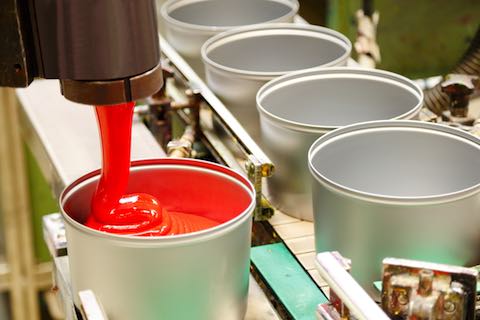Siegwerk and APK Work Together to Improve the Recyclability of Plastic Packaging
Press release from the issuing company
In the fight against plastic waste, Siegwerk and APK have joined forces to make plastic packaging more recyclable and to perfect the recycling processes as part of a circular economy.
Siegburg – Siegwerk, one of the world's leading providers of printing inks for packaging applications and labels, and APK AG, a specialist in the production of high quality plastic granulate from plastic waste, want to meet the challenges of plastic recycling together and further optimize the recyclability of plastic packaging working in a circular economy.
Plastic waste is one of the major issues of our time. Almost 80 million tons of plastic waste accumulate worldwide, and currently only about 10 percent of the resources used in the production of plastics are recovered through recycling. The remaining 90 percent are incinerated, dumped or enter the environment uncontrolled. “We face a huge challenge here, which we need to solve in a short time,” says Dr. Jörg-Peter Langhammer, Head of Global PSR + Sustainability at Siegwerk. In Europe, the recycling rate for plastic packaging was 41.9 percent in 2017 and is expected to increase to 50 percent by 2025 according to an EU resolution. “Plastic recycling is such a complex topic, that, in fact, it cannot be solved by one industry player or one sector of industry alone,” adds Klaus Wohnig, Spokesman of the Board of APK AG. “Yes, the current discussion, also in the public, is primarily focused on the challenges of how industry can establish a sustainable circular economy for plastics in the shortest time possible.”
Polyolefins, a collective term for the kinds of plastic that include polyethylene (PE) and polypropylene (PP), are the most commonly used raw materials in the packaging sector and, due to their versatility, are used for a number of different applications, including: cling wrap, carrier bags, bottles, food packaging, etc. In view of the fact that the recycling rate for products made out of polyolefins was below 40 percent in Europe in 2017, the gap in achieving the higher 50 percent recycling rate for plastic packaging by the year 2025 is becoming more apparent. “This means the industry must urgently address solutions for the recycling of polyolefins,” adds Langhammer. "The main challenge is to manufacture recyclates to a sufficient level of quality allowing them to be reused for the production of high quality packaging." The majority of recyclates are not yet suitable for use in packaging and are thus removed from the packaging cycle.
Printing inks play a key role in the manufacture of plastic packaging. They are not only crucial for the appearance and functionality of the packaging, but also for its recyclability. “Printing inks in particular, but also pigments, and the organic residues from post-consumer waste, represent a challenge when it comes to manufacturing a reusable recyclate that is as versatile as possible”, explains Wohnig. With Newcycling ® , APK has developed a solvent process that dissolves and cleans the polymer, meaning that polymers can be separated selectively in mixed plastic waste. The result is sorted granulate that is like new. “Printing inks are a particular challenge here, which we can only solve with an expert,” says Wohnig. “We are pleased to have found this expert in Siegwerk.” As a specialist in packaging printing inks, Siegwerk has strives to constantly improve the ecological footprint of its printing inks and varnishes while actively shaping the future of packaging with innovative and sustainable ink solutions. “Sustainability means progress to us”, explains Langhammer. Siegwerk is already pursuing different approaches for removing printing ink (de-inking) in various recycling processes in order to improve recycling quality. “To do so, we must understand the possibilities of recycling and be ready to take new approaches to increase recyclability. This makes the collaboration with APK extremely valuable to us,” continues Langhammer.
With this collaboration, both companies see the possibility to jointly meet the challenges in plastic recycling, to make plastic packaging more circular and consequently to perfect it for a sustainable future. “When we achieve that, people will once again discuss the positive qualities of plastic packaging, which comes off quite badly in today's discussions about plastic packaging, unfortunately,” concluded Wohnig.
You can find more information on Siegwerk at www.siegwerk.com.

- Questions to ask about inkjet for corrugated packaging
- Can Chinese OEMs challenge Western manufacturers?
- The #1 Question When Selling Inkjet
- Integrator perspective on Konica Minolta printheads
- Surfing the Waves of Inkjet
- Kyocera Nixka talks inkjet integration trends
- B2B Customer Tours
- Keeping Inkjet Tickled Pink
© 2024 WhatTheyThink. All Rights Reserved.














